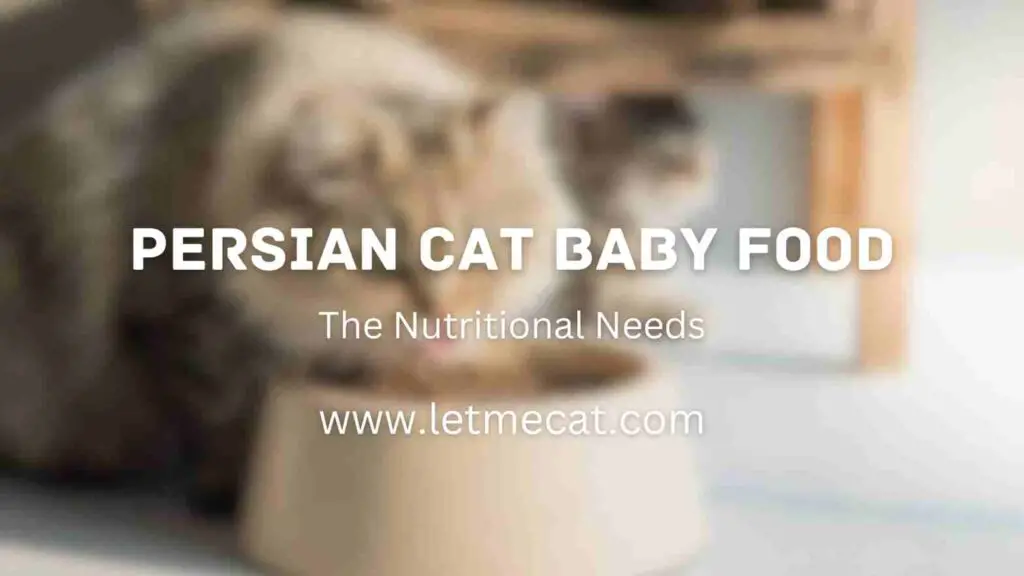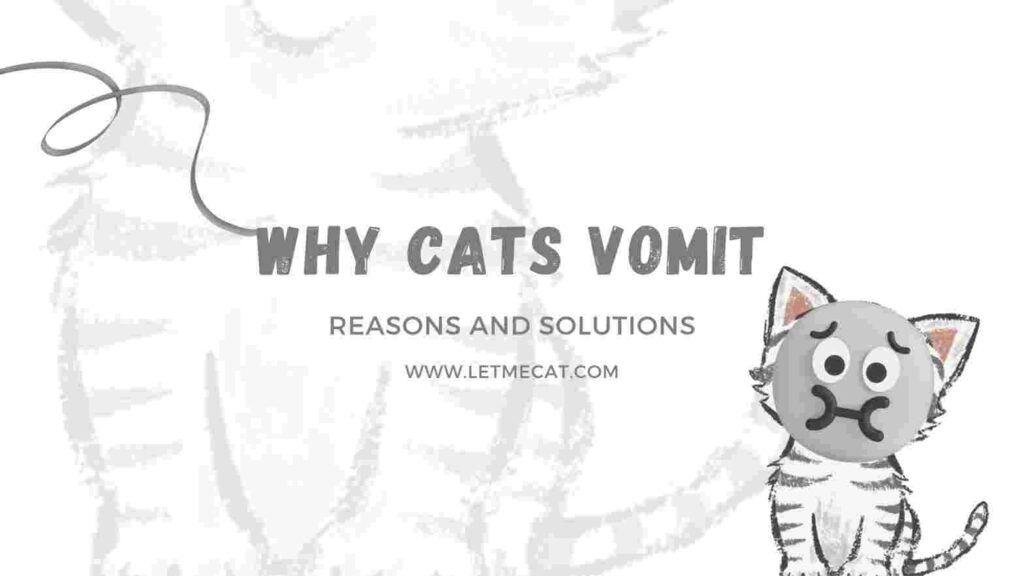In this article, we will delve into the world of Persian cat baby food, exploring their unique nutritional needs, suitable food options, feeding schedules, and essential tips for raising a healthy and happy Persian kitten.
Understanding the Nutritional Needs of Persian Cat Babies
The Importance of a Balanced Diet for Persian Cat Babies
Proper nutrition plays a vital role in the growth and development of Persian cat babies. Just like human babies, they require a balanced diet to support their overall health and well-being. A nutritious diet helps them build strong bones, develop healthy organs, and maintain a robust immune system.
Nutritional Requirements for Persian Cat Babies
Persian cat babies have specific nutritional requirements that differ from adult cats. Their growing bodies need a combination of proteins, fats, carbohydrates, vitamins, and minerals to support their rapid development.
Protein is particularly important for muscle and tissue growth, while essential fatty acids aid in brain development and healthy skin.
Common Nutritional Challenges for Persian Cat Babies
While it’s crucial to provide a well-rounded diet, Persian cat babies can face certain nutritional challenges. Some kittens may have difficulty chewing or digesting certain foods, while others might be more prone to allergies or sensitive stomachs. It’s essential to monitor their dietary intake and address any issues promptly.
Choosing the Right Baby Food for Persian Cats
High-Quality Commercial Baby Food Options
One convenient option for feeding Persian cat babies is high-quality commercial baby food. Look for brands that offer specifically formulated kitten food, as these products often meet the nutritional needs of growing kittens.
Read the ingredient list carefully, ensuring it contains high-quality proteins and avoids artificial additives or fillers.
Homemade Baby Food Recipes for Persian Cats
If you prefer a more hands-on approach, you can prepare homemade baby food for your Persian cat. It allows you to have control over the ingredients and tailor the recipes to your kitten’s dietary needs.
Some suitable homemade options include boiled chicken, pureed fish, or cooked eggs. However, it’s crucial to consult with a veterinarian to ensure the recipes meet all the necessary nutritional requirements.
Consulting with a Veterinarian for Dietary Recommendations
When it comes to Persian cat baby food, consulting with a veterinarian is essential. They can provide personalized dietary recommendations based on your kitten’s specific needs. A veterinarian can assess your kitten’s overall health, identify any potential allergies or sensitivities, and guide you toward the most suitable baby food options.
Feeding Schedule for Persian Cat Babies
Establishing a Feeding Routine
Establishing a consistent feeding routine is crucial for Persian cat babies. Kittens thrive on predictability, and a regular feeding schedule helps maintain their overall well-being. Choose specific times of the day for feeding and stick to them. This routine will also assist in monitoring your kitten’s appetite and ensuring they receive adequate nutrition.
Portion Control and Frequency of Meals
Persian cat babies should be fed smaller, frequent meals throughout the day. As a general guideline, kittens aged 4-6 weeks require approximately six small meals a day, gradually reducing to four meals by 8-12 weeks.
Adjust the portion sizes according to your kitten’s age, weight, and growth rate. It’s important to avoid overfeeding to prevent obesity and related health issues.
Tips for Introducing Solid Foods to Persian Cat Babies
Gradual Transition to Solid Foods
Around the age of 4-6 weeks, Persian cat babies begin the transition from milk to solid foods. Introduce solid foods gradually to avoid overwhelming their delicate digestive systems. Start by mixing a small amount of wet food or baby food with formula or kitten milk replacement, gradually increasing the proportion of solids over time.
Monitoring the Cat’s Response to New Foods
When introducing new foods to your Persian cat baby, carefully monitor their response. Look for signs of allergies or digestive issues such as vomiting, diarrhea, or excessive scratching. If any adverse reactions occur, discontinue the particular food item and consult your veterinarian for guidance.
Ensuring Proper Hydration
Hydration is crucial for your Persian cat baby’s health. Alongside solid foods, provide access to fresh, clean water at all times. Monitor their water intake to ensure they stay properly hydrated. Additionally, consider incorporating wet food into their diet, as it contains higher moisture content, aiding in hydration.
Common Mistakes to Avoid When Feeding Persian Cat Babies
Overfeeding or Underfeeding
Maintaining the right balance in feeding is essential for Persian cat babies. Overfeeding can lead to obesity and associated health problems, while underfeeding can result in malnutrition and stunted growth. Carefully measure portions, monitor your kitten’s weight, and consult your veterinarian to ensure they receive the appropriate amount of food.
Feeding Inappropriate Foods
Avoid feeding inappropriate or toxic foods to your Persian cat baby. Some human foods, such as chocolate, onions, or grapes, can be harmful or even fatal to cats. Additionally, avoid feeding your kitten raw meat or foods that are high in salt, sugar, or spices.
Ignoring Signs of Allergies or Digestive Issues
Pay close attention to any signs of allergies or digestive issues in your Persian cat baby. If you notice persistent vomiting, diarrhea, bloating, or changes in appetite, consult your veterinarian immediately. They can help identify the cause of the issue and recommend suitable dietary adjustments or treatments.
Maintaining Optimal Health for Persian Cat Babies
Regular Veterinary Check-ups
Regular veterinary check-ups are crucial for the overall health and well-being of your Persian cat baby. Schedule routine visits to ensure your kitten receives necessary vaccinations, deworming, and general health assessments. Your veterinarian can also provide guidance on nutrition, and growth monitoring, and address any concerns you may have.
Providing a Stimulating Environment
Persian cat babies thrive in an environment that provides mental and physical stimulation. Engage your kitten with interactive toys, scratching posts, and play sessions to keep them active and entertained. A stimulating environment promotes their overall well-being and helps prevent behavioral issues.
Proper Grooming and Dental Care
Grooming and dental care are essential aspects of Persian cat baby care. Regularly brush your kitten’s luxurious coat to prevent matting and hairballs. Start dental care early by introducing gentle teeth brushing or providing appropriate dental treats. These practices promote good hygiene and reduce the risk of dental diseases.
Conclusion
Raising a Persian cat baby requires special attention to their nutritional needs. By understanding the importance of a balanced diet, choosing suitable baby food options, establishing a feeding schedule, and implementing appropriate feeding practices, you can ensure your kitten grows into a healthy and happy adult cat.
Don’t forget to consult with your veterinarian for personalized recommendations and maintain regular check-ups to address any specific concerns.
Thank you for reading this article.



